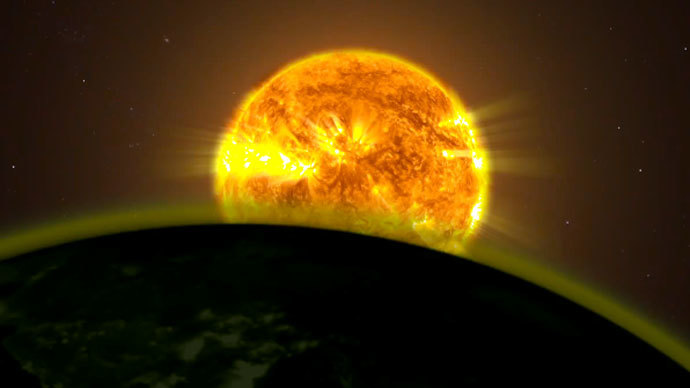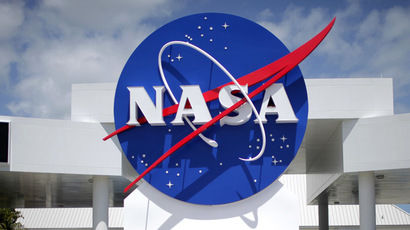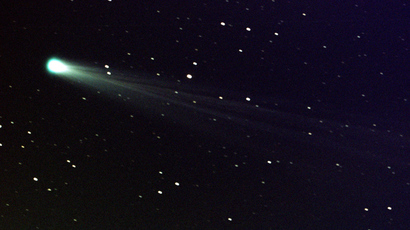Hubble spots water on 5 Jupiter-sized distant worlds

NASA’s Hubble Space Telescope has found water on five giant alien worlds, according to new studies. The discovery marks the first time scientists have been able to compare water signatures across several planets at once.
The celestial bodies are some 1,000 light years away and all ultra-hot, Jupiter-sized worlds orbiting closely their several host stars, with the planet having the most ‘puffed-up’ atmosphere also showing the strongest signs of water, the space agency reported.
NASA’s Avi Mandell, who authored the paper outlining the findings, told reporters that the team are “very confident” about seeing traces of water on multiple planets at once.
"This work really opens the door for comparing how much water is present in atmospheres on different kinds of exoplanets, for example hotter versus cooler ones," Mandell added.
The new studies were part of an exoplanet census by L. Drake Deming of the University of Maryland in College Park, the process involving the use of Hubble’s Wide Field Camera 3 to measure light absorption by the water candidates’ atmospheres.
To do this the scientists needed to use different wavelengths, which allowed them to see the change in light and allowing then to establish each planet’s absorption profile based on the light’s shapes and intensities.
Deming, whose team was responsible for finding water on two of the planets, explained that "to actually detect the atmosphere of an exoplanet is extraordinarily difficult. But we were able to pull out a very clear signal, and it is water."
His team used longer exposure times while shooting the planets, which allowed for much finer measurements.
There is a suspected layer of dust in the atmospheres of all the planets – something NASA believes has caused the water signatures to appear less prominent. The intensity of the light has been reduced by that haze, thus somewhat clouding the intensity of all the elements in the atmosphere.

There was surprise at first that all the water candidates shared a hazy atmosphere, but based on other recent studies, this could be a common occurrence. Based on this, Heather Knudson of the California Institute of Technology, who co-authored Deming’s study, says that "these studies, combined with other Hubble observations, are showing us that there are a surprisingly large number of systems for which the signal of water is either attenuated or completely absent… this suggests that cloudy or hazy atmospheres may in fact be rather common for hot Jupiters."
Hubble has continued to wow its own scientist user-base with how it still manages to offer groundbreaking results in the midst of all the new equipment available to us for studying the universe. The telescope’s Wide Field Camera 3 is among a small number of devices capable of studying the characteristics of an object located trillions of miles away.
To this day our most reliable method for measuring this is the dimming of the light from a host star at a time a celestial object passes in front of it. The dip in the star’s light allows us to study the planet’s size, for example, while gases can be identified by the varying dimming when seen through different wavelengths.














